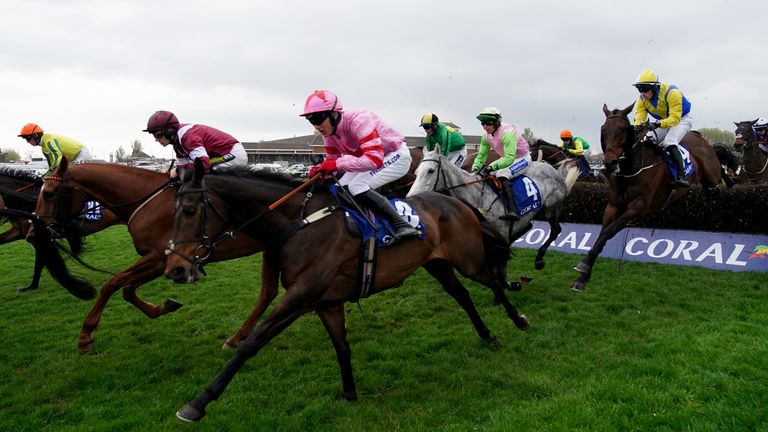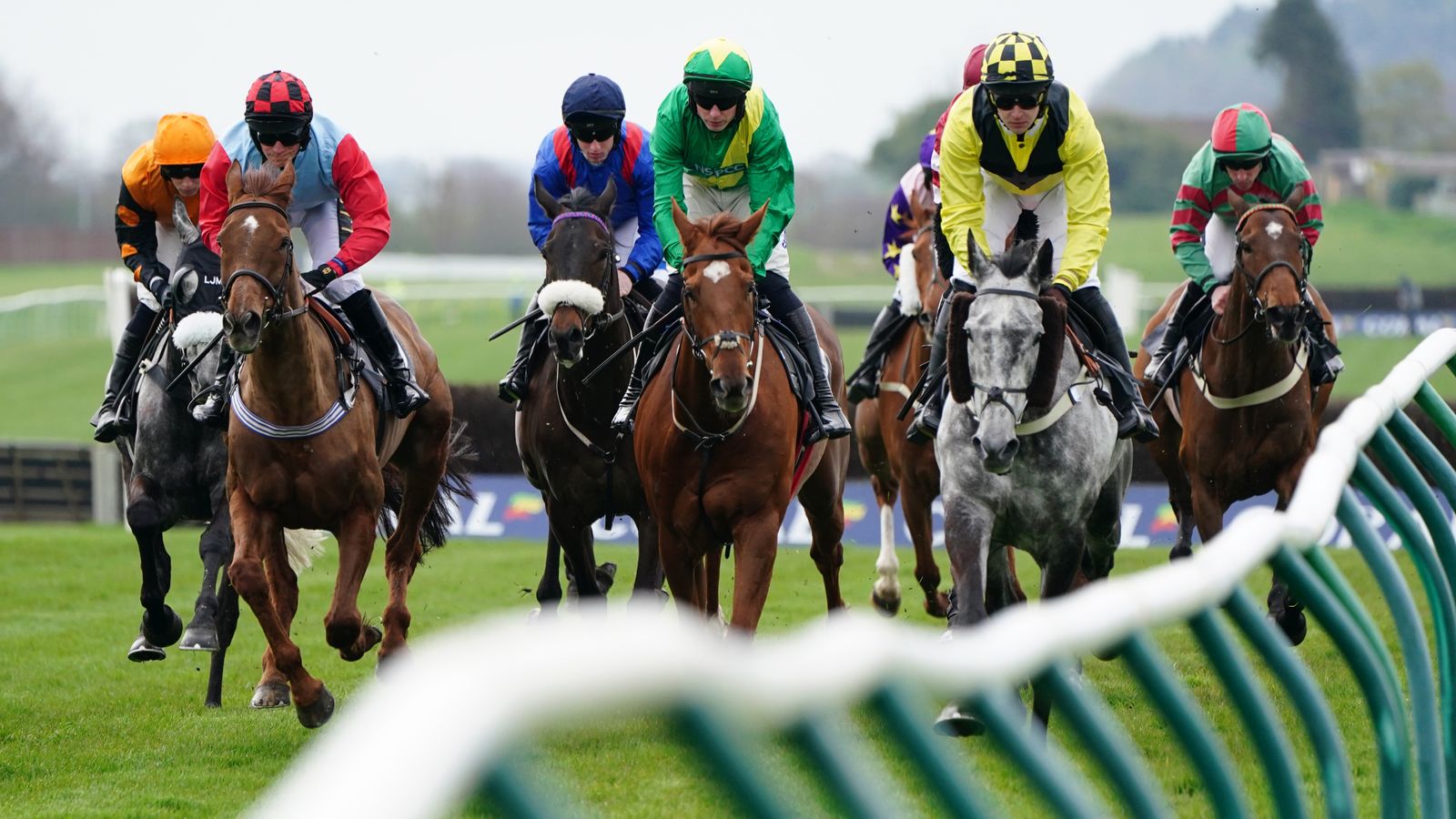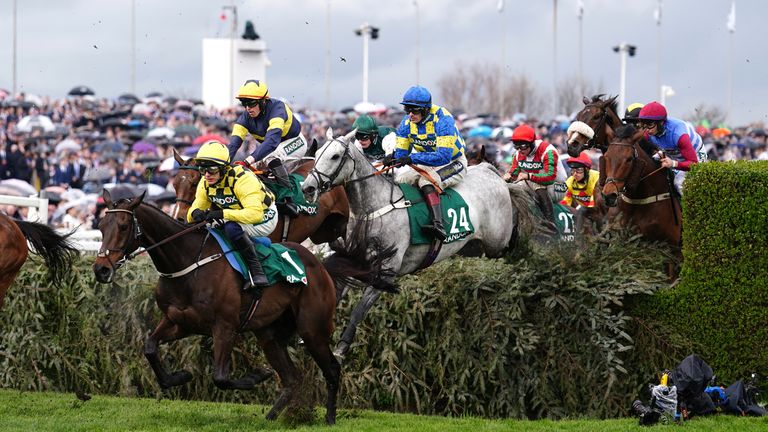
The Grand National will be reduced from 40 to 34 horses in an attempt to make the race safer after three deaths at the Aintree Festival earlier this year.
The Jockey Club has announced the first cut in 40 years to the number of runners for the country’s toughest but most popular race.
The first fence will also be moved 60 yards closer to the start in an attempt to slow the early stages – among changes that follow animal welfare protesters trying to gain entry to the track in April to prevent the race going ahead.
Aintree head of racing, Sulekha Varma, told Sky News: “Equine welfare and safety is obviously the priority – and always will be – but we were very conscious of needing to retain it as an exciting race, as a unique race.
“The fences that they jump over are different to any other racecourse in the world… we firmly believe this is the right move for the race to reduce the number of runners, but at the same time maintaining the competitiveness.”
Foam and rubber toe boards will also be introduced on every fence, while changes will be made to the alignment of the running rail to assist with the early capture of loose horses.
The start time will also be brought forward from 5.15pm – which was optimised in recent years for television between the day’s main football matches – after organisers found the later start led to the racing surfacing drying out and firming up the track.
They say “good to soft ground is optimal for jump racing”, but that talks with ITV continue.
There will also be changes to the pre-race parade which was found to heighten tension for horses in front of the excitable crowd by the main grandstand.
Read more on Sky News:
Release blocked of man who killed wife with hammer
Antisemitic incidents up 300% since Hamas attack on Israel
Captain Tom’s daughter says he wanted her to keep book profits
Instead of being led by a handler, horses will be allowed to “canter in front of the stands at their own pace,” the Jockey Club said.
And there will be a standing start to the race in an attempt to reduce the speed horses approach the first fence rather than a rolling start.
The grade to enter the race will be raised to ensure there are fewer horses at risk of making mistakes and ultimately falling – with the minimum handicap rating raised from 125 to 130.
One horse suffered a broken neck during the Grand National in April – among three deaths at Aintree this year.
Since 2000, 62 horses have died at the Aintree Festival – with 16 killed in the Grand National.
Jockey Club chief executive, Nevin Truesdale, said the sport had to “recognise when action needs to be taken to evolve because the safety and care of horses and jockeys will always be our number one priority”.
He added: “In making these changes at Aintree we are underlining our relentless focus on welfare and our commitment to powering the future of British racing.”













